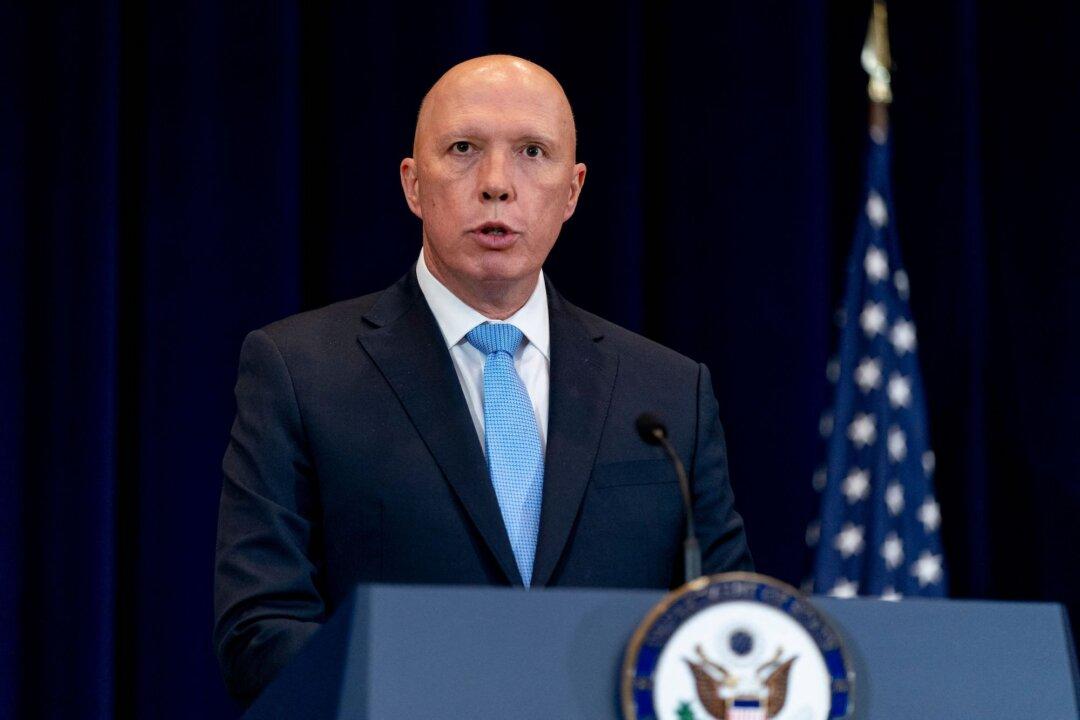Defence Minister Peter Dutton has ruled out a “third-class of submarine” following concerns that Australia could be short-handed and face a military capability gap before the arrival of nuclear-powered submarines under the AUKUS agreement by 2040.
Dutton, of the governing centre-right Coalition, made the comments during the Defence Debate with shadow defence spokesperson Brendan O’Connor at the National Press Club in Canberra.





